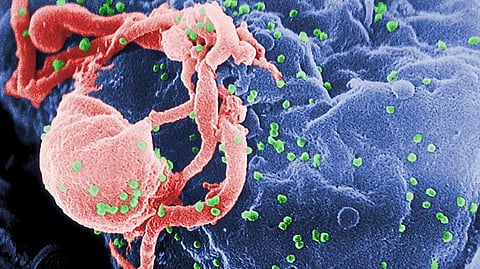People with HIV Experience Higher Rates of Inflammation and Immune Activity During Pregnancy
Published in the Journal of Infectious Diseases, the study examined the impact of inflammation and the biomarkers that activate the immune system in pregnant people with HIV on the growth of their babies.
“We wanted to see if inflammation and immune activation in pregnant people with HIV is different than pregnant people without HIV, and how inflammation and immune activation during pregnancy impacts children who are exposed to HIV during pregnancy but are not infected,” said Stephanie Shiau, lead author of the study and an assistant professor at the Rutgers School of Public Health. The study found that certain maternal inflammatory biomarkers were associated with poor growth in children in the first year of life.
While the successful expansion of antiretroviral therapy in pregnant people with HIV has improved maternal outcomes and reduced transmission of HIV to their babies, there is a growing population of children who have been exposed to HIV and are uninfected.
These children have a higher risk of poor health outcomes compared with those unexposed to HIV. Globally, studies have found that kids who have been exposed to HIV experience poorer growth and survival outcomes, however, little is known about this phenomenon.
The researchers also evaluated how the timing of maternal HIV infection and the type of antiretroviral therapy being provided during pregnancy might affect maternal inflammatory biomarkers. They found that the timing of when mothers became HIV infected and certain antiretroviral medications impacted several maternal inflammatory biomarkers.
The study, among the first to examine the impact of maternal inflammation and immune activation during pregnancy in people with HIV on their babies, analyzed data from 188 pregnant people with HIV from the Dynamic Cohort of the Surveillance Monitoring for ART Toxicities study conducted by the Pediatric HIV/AIDS Cohort Study (PHACS) network and 76 pregnant people without HIV from a cohort in New York. Of the pregnant people with HIV, 39 had acquired HIV perinatally, while 149 had acquired HIV later in life.
Shiau said future research should seek to better understand the role of antiretroviral medication in systemic inflammation and immune activation during pregnancy and whether controlling inflammation could improve maternal and infant health outcomes for pregnant people with HIV and their children.
This research was supported by the George R. Seage III PHACS Early Career Investigator Mentored Research Award (Awarded to Shiau) and the Thrasher Research Fund Early Career Award (Awarded to Shiau). (GN/ NEWSWISE)


